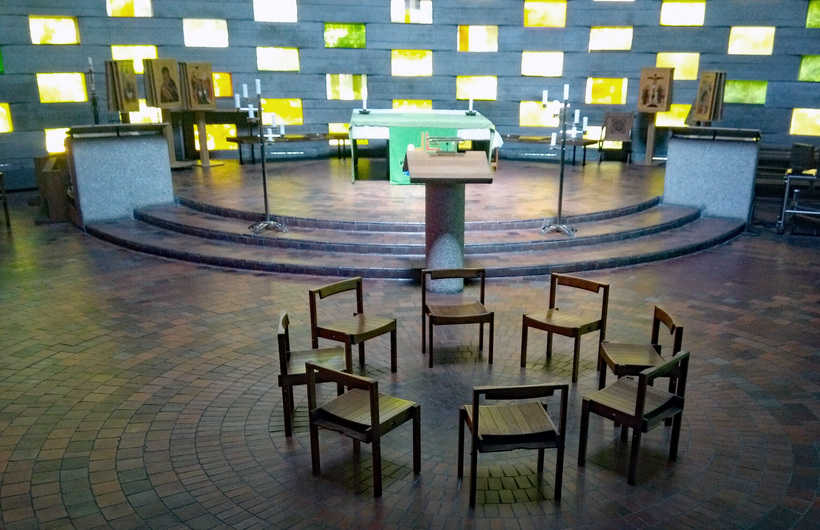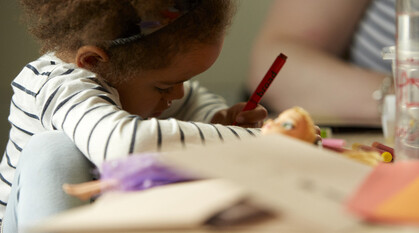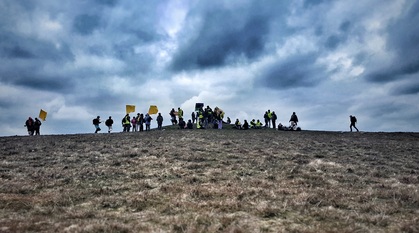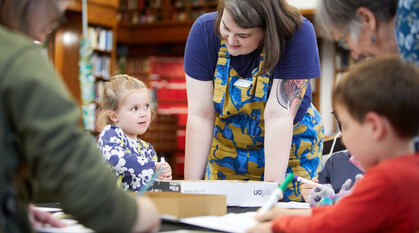A day in the life of a Quaker chaplain
Curious about what it's like to be a Quaker chaplain? From exploring worship with university students to dealing with difficult moments in a hospital, Marleen Schepers spoke to two Quaker chaplains to find out more.

Chaplains aim to provide a Quaker presence wherever they work, offer spiritual counsel and guidance and contribute to religious services.
Support provided by chaplains depends on the setting and what's needed that day – no two days are the same. Quaker chaplains usually form part of a multi-faith team and work anywhere from two or three days a month, to doing some work every day. Hospital chaplains are often employed by the NHS and serve people of all faiths and none.
Jason and Joannie are both Quaker chaplains: Jason has worked at a university for four years and Joannie has worked in hospitals for seven years. They're also both tutors for Woodbrooke's online chaplaincy course. Here, they share some reflections on their roles, what they have learnt and the challenges they come across as chaplains in these different spaces.
A typical day for a university chaplain
Jason: "A typical day for me involves a lot of things going on at once. I might have the doctoral school in the quiet room doing three-minute 'thesis speed-dating'; a crew from the business school doing some filming in the chapel; a keyboard scholar hoping to tune the harpsichord; Catholic Mass may or may not be happening (both of those are also in the chapel).
"This is all easy enough if you are organised and good at multi-tasking... I'm neither, but I muddle through and still take a moment or two to try and make somebody's day with a kind word or two."
The challenges of university chaplaincy
Jason: "The most challenging day of chaplaincy for a long time was when I had to hold a memorial service for a student who took his own life, and attempt to console his distraught mother. My heart was broken for her. He meant everything to her, and I knew nothing I could say would take away her pain.
"Overall I felt quite inadequate and I kept asking myself what more I could do. Boundaries are important, but that day my policy was, 'here before me is a human being who is suffering – I must do whatever I can for her'."
Exploring worship with students
Jason: "Early on I realised that gathering enough of a Quaker community on campus to support a regular meeting for worship was going to present a challenge. There's a sprinkling of Quakers, sure – I refer to them jokingly as the 'Quaker Diaspora' – but many are stressed and busy with teaching jobs or support roles. I thought a meeting for worship was all too likely to fizzle out.
"Then I hit on the idea of holding a regular Experiment with Light meditation. It wouldn't be as full an experience of that practice as a closed group might be, but it would provide a taste of Quakerism and complement an existing programme of mindfulness groups as well as the full experience of Quaker worship available at nearby meeting houses.
"This is just an example: someone else might find completely different solutions for their particular challenges of chaplaincy. Indeed there is no one-size-fits-all model for university chaplaincy, nearly every institution seems to do it differently."
Holding space for others as a hospital chaplain
Joannie: “For me, holding space means to be fully present with an open heart, with no agenda to change the situation or direct it, but leaving space for the other person to express whatever they feel in whatever way they choose.
"Allowing emotions to rise and pass, I maintain a stillness and calm, responding only when feeling prompted, leaving my ego behind. It's a bit like being fully there, but leaving me out of it. And it works..."
The joys and challenges of working in a hospital
Joannie: “As a hospital chaplain I can identify with particular best and worst times.
"For worst times, baby and child loss comes high on the agenda. Times when all you can do is witness the raw pain of loss, being present, listening to them, holding space and giving them the freedom to express themselves; in whatever way they choose.
"Worst times can also be when you recognise that working in an institution means that you are a small cog in a giant mechanism and it's difficult to initiate. Being the only Quaker on a team can be quite a lonely position.
"However, I know that for me the best times, without doubt, are the times of deep connectedness that can arise from what begin as everyday encounters. Times when your work becomes your worship. Times when shifts take place. Times when we meet in those things which are eternal. Times that become 'thin places'. Times that validate and affirm your spirituality like nothing else can.
"These times may seem fleeting, but remain with you always and so make it easier for you to 'walk with a smile into the dark'."
Advice for potential chaplains
Jason: "Hopefully those of us considering chaplaincy will have realised that becoming a chaplain is something of an unending state rather than something that you do once then magically appear, fully formed with super powers.
"Are we comfortable with our sense of becoming, 'as the way opens'? Are we comfortable that we don't know everything and are we willing to learn and maybe even make mistakes?
"A fellow chaplain once told me, 'Don't worry if you try something one year and it doesn't work; you can always try something else next year!'
"Consider the possibility that you might already be enough of the chaplain you need to be."


